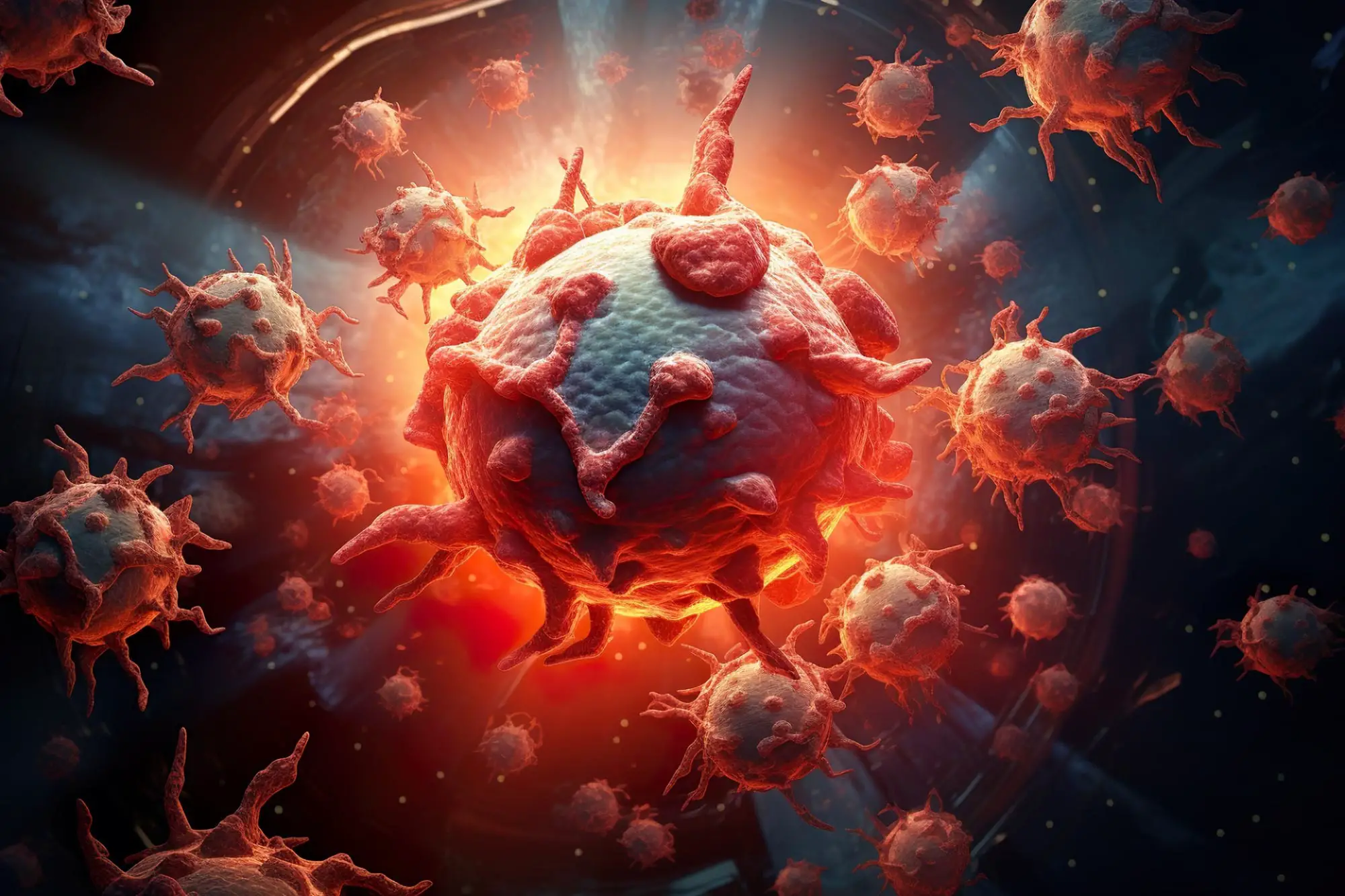Researchers have discovered a way to increase the effectiveness of CAR T-cell immunotherapy and prolong the cells’ ability to fight cancer by inhibiting metabolic mechanisms. The study found that shutting down this mechanism in CAR-T cells promoted their transformation into memory T lymphocytes, resulting in longer-lasting immune protection against tumors.
Researchers in western Switzerland have discovered a way to boost the tumor-fighting ability of CAR-T cells, the artificial immune “super cells” used in the fight against blood cancers.
Among the available immunotherapies, the use of «CAR-T» cells has shown remarkable efficacy in the treatment of certain blood cancers, but only in half of patients. The main reason for this is the early dysfunction of these immune cells, which are artificially modified in vitro.
A joint research team from the University of Geneva (UNIGE), Lausanne (UNIL), Geneva University Hospital (HUG) and Vaud University Hospital (CHUV), part of the Swiss Leman Cancer Center (SCCL), has identified a method. Prolongs the function of CAR-T cells. By inhibiting a highly specific metabolic mechanism, the researchers were able to create CAR-T cells with enhanced immune memory and the ability to fight tumor cells for longer.
These very promising results were recently published in the journal Nature.
CAR-T cell immunotherapy involves harvesting immune cells (usually T lymphocytes) from a person suffering from cancer, modifying them in the lab to increase their ability to recognize and fight tumor cells, and then giving them to the patient. This includes re-administration. However, as with other types of immunotherapy, many patients do not respond to treatment or relapse.
“CAR-T cells need to be expanded to large numbers before they can be administered,” explains Matthias Wennes, a researcher who coordinated the study in the laboratory of Dr. Dennis Migliorini in the Department of Oncology at the UNIGE School of Medicine. With a hug. “However, the patient’s medical history, combined with the amplification process, exhausts the cells. The cells reach a state of terminal differentiation, hastening the end of their life cycle without leaving time to work their way up.”
Mechanisms common to cancer cells and immune cells
In the absence of oxygen, cancer cells rely on very specific survival mechanisms. In other words, cancer cells metabolize amino groups. acid Glutamine as an alternative energy source through a chemical reaction known as “reductive carboxylation.” “Immune cells and cancer cells have fairly similar metabolisms and therefore proliferate very rapidly. We actually discovered here that T cells also use this mechanism.” explains Dr. Alison Jacquard. student in Professor Ping-Chih Ho’s laboratory at UNIL-CHUV Oncology Department and first author of this study.
To investigate the role of reductive carboxylation, the scientists inhibited this mechanism in CAR-T cells from mouse models of the blood cancers leukemia and multiple myeloma. “Our engineered CAR-T cells proliferated normally and did not lose their ability to attack, indicating that reductive carboxylation is not essential for the cells,” summarizes Mathias Wenes. .
These CAR-Ts cured mice
What’s more, the mice treated with this method were virtually cured of their cancer, far exceeding the researchers’ expectations. “Without reductive carboxylation, cells differentiate less and maintain anti-tumor function longer. Moreover, and this is the core of our discovery, they retain the memory of the tumor elements they need to attack. They tend to transform into memory T lymphocytes, a type of immune cell that retains
Memory T lymphocytes play an important role in secondary immune responses. They retain the memory of previously encountered pathogens and can be reactivated when that pathogen reappears, as in the case of disease. virusas well as in the case of tumor pathogens, providing longer-lasting immune protection. “The same principle applies to CAR-T cells: the higher the number of memory cells, the more effective the anti-tumor response and the better the clinical outcome.” Therefore, the differentiation state of CAR-T cells It is an important factor in the success of treatment. ”
Crosstalk between metabolism and gene expression.
expanded, DNA The length contained in each of our cells will be approximately 2 meters. To fit into the tiny cell nucleus, it is condensed around proteins called histones. For gene transcription to occur, specific regions of DNA must be unwrapped, and this occurs by modifying histones.
When T cells are activated, histone modifications occur that, on the one hand, condense DNA and prevent gene transcription, ensuring longevity, but on the other hand, allow transcription of genes that drive inflammatory and lethal functions. to enable transcription. Reductive carboxylation acts directly on the production of metabolites, small chemical elements that modify histones, impacting DNA packaging and preventing access to longevity genes. Its inhibition keeps these genes open and promotes conversion to long-lived memory CAR-T.
Clinical application soon?
The inhibitors scientists used to block reductive carboxylation are drugs that are already approved to treat certain cancers. “We therefore propose to expand its use and reposition it to produce more potent CART cells in vitro.” Of course, its efficacy and safety will be tested in clinical trials. It needs to be tested, but we have high hopes!” conclude the authors.
An example of what Swiss Cancer Center Leman can achieve
This potentially translatable research would never have been possible without the network put in place by SCCL. In fact, at least four Leman Institute laboratories, UNIL, CHUV, UNIGE, and HUG, have joined forces to make this impactful project a reality. The alliance between these institutions fosters collaboration between groups and enables synergies in mutually complementary areas (tumor metabolism, tumor immunology, immune cell engineering).
Reference: “Reductive carboxylation epigenetically directs T cell differentiation” Alison Jaccard, Tania Wyss, Noelia Maldonado-Pérez, Jan A. Rath, Alessio Bevilacqua, Jhan-Jie Peng, Anouk Lepez, Christine Von Gunten, Written by Fabien Franco, Kung-Chi Kao, Nicolas Camviel, Francisco Martín, Bert Ghesquière, Dennis Migliorini, Caroline Arbor, Pedro Romero, Pinchy Ho, Matthias Wenes, September 20, 2023. Nature.
DOI: 10.1038/s41586-023-06546-y

